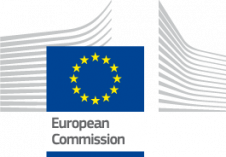SKILLBILL is a cross-national 3-year long Coordination and Support Action (01/09/2022-31/08/2025), supported by the European Union within the framework of the Horizon Europe programme.
SKILLBILL aims to pave the way to different forms of training and education in order to meet new skills requirements in RES field as well as induce citizens and stakeholders to get interested or involved in RES besides the initial level of education, their working position and their gender.
By its actions, SKILLBILL contributes to solving the energy problem by approaching the issue socially, scientifically and technologically in order to reach the goal of a low-carbon energy system
The main challenge
The transition to a low-carbon energy system is both a societal challenge and a technical problem. Also, several barriers that hamper RES diffusion can be connected with educational and awareness aspects. Thus, the question arises as to what could be the context of the actions that will overcome these obstacles.
How SKILLBILL addresses this challenge? The growth and acceleration of renewable energy’s deployment requires the successful development of a large and strong foundation for gaining all fundamental theoretical and practical knowledge on this field.
SKILLBILL addresses all complex challenges across multiple disciplines, including economy and sociology, reaching the goal with openness and flexibility, broadening of what an ‘energy problem’ is, encompassing all the different social, political and cultural concerns that are often at the core of seemingly technical energy issues.
Approach to challenges
The method of working towards the successful completion of this process will be carried out with training and education tools. SKILLBILL follows an effective methodology to facilitate the participation of both adults and young people in learning activities for the acquisition of scientific, technical, entrepreneurial and digital skills that are vital for getting involved in RES.
Six steps to lay the foundation
- Steer the development of a greener, more effective and pervasive next generation of sustainable Technology. SKILLBILL creates interdisciplinary working groups to discuss on technological and non-technological barriers for RES penetration with the involvement of industry, academia, government and civil society organisations – “Joint Stakeholder Initiative”.
- Launch the point of reference for qualitative information on RES and promote and accelerate the development of sustainable solutions. SKILLBILL develops an inclusive, dynamic and open depository and network for educational videos, interviews with business leaders and training lectures for each technology and several levels of details – “Green Portal”.
- Develop an advanced permanent education program on RES at European level. SKILLBILL launches an education program for the upskilling of technicians, designers and researchers on renewable energy with additional focus on circular economy, performed by several universities along with industry – “European Master”.
- Develop a technical practical permanent Vocational Education Training program on RES. SKILLBILL establishes new training courses on-line and/or using virtual reality for people looking for new or updated competences on RES – “Vocational Education Training Program on RES”.
- Reduce gender gap in science, technology, engineerings and mathematics (STEM). SKILLBILL’s Green Portal includes a dedicated section to increase the value and involvement of female talent in technology, innovation and scientific research, combating stereotypes and gender discrimination.
- Increase awareness on RES. SKILLBILL works on the increasing awareness, fighting fake news and consequently improving acceptability on RES.
Metropolia University of Applied Sciences' role in SkillBill project
SkillBill project aims at accelerating the deployment of renewable energy and renewable fuel technologies through education, skilling, information and engaging with stakeholders at different levels:
- Stakeholder community engagement
- Knowledge sharing and peer learning
- Skilling, upskilling, reskilling
Metropolia UAS together with Utrecth University (NL), University of Tuscany (IT) and University of Sevilla (ES) will develop a joint Specialization School (Sustainable energy and energy transition) starting in Autumn 2023.
Metropolia is also in charge of developing XR-based learning environments for the SkillBill project for the Specialization School and vocational education training (VET).
More information
Mona Roman, innovation director
mona.roman [at] metropolia.fi (mona[dot]roman[at]metropolia[dot]fi)
Metropolia University of Applied Sciences
Please, visit the project website (skillbill-project.eu)
